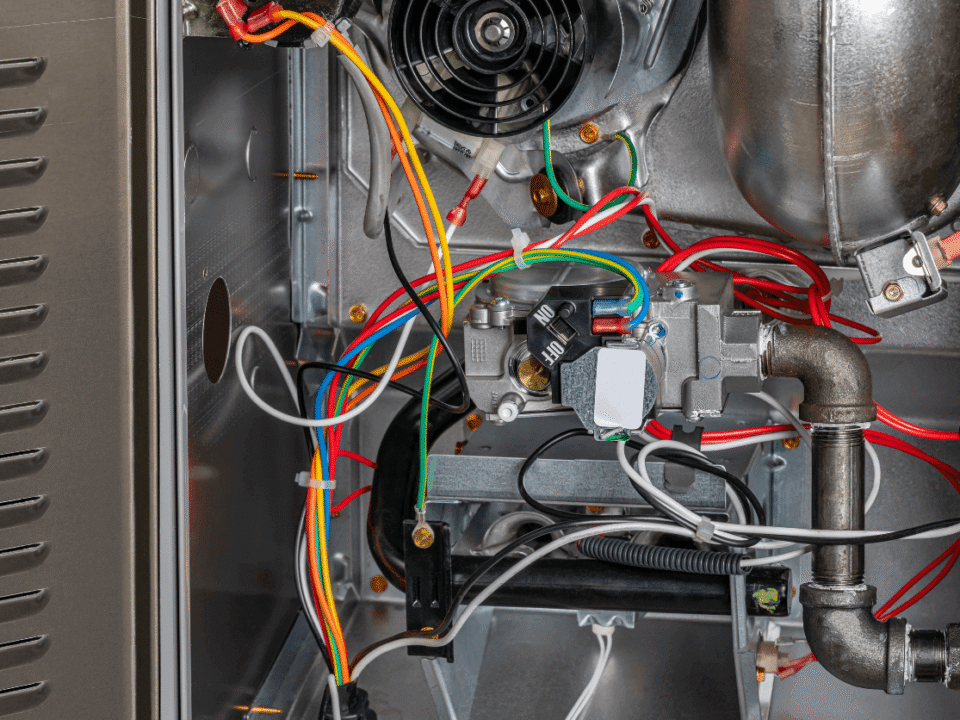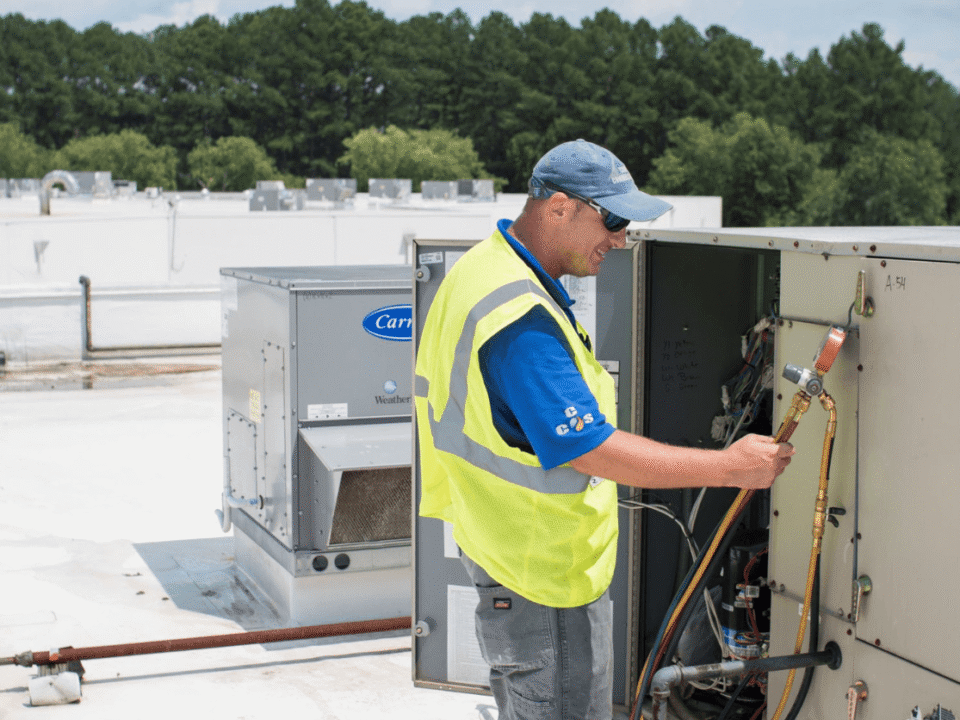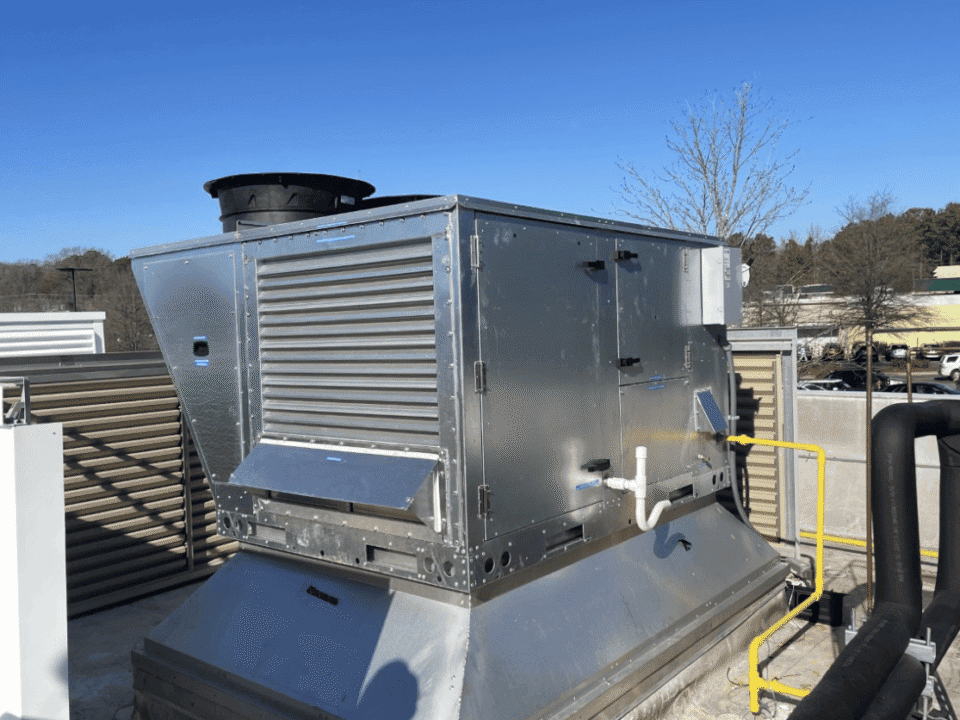
Emergency Heating Repair: Staying Warm During a Cold Snap
November 21, 2024
What are HVAC Load Calculations?
January 23, 2025Exploring Heat Pump Systems for Residential and Commercial Spaces
Maximizing efficiency with heat pumps
Heat pump systems are quickly becoming one of the most popular choices for both residential and commercial heating and cooling. Whether you’re a homeowner in Raleigh, NC, looking to lower your utility bills, or a business leader seeking sustainable HVAC solutions, heat pumps offer innovation, versatility, and long-term value.
In this blog, we’ll explore how heat pump systems work, the benefits they bring to homes and commercial buildings, and key considerations before installing one.
What are Heat Pump Systems?
Heat pumps operate by transferring heat rather than generating it. In the winter, they move heat indoors to warm a space; in the summer, they reverse the process to provide cooling. Unlike traditional systems that rely heavily on burning fossil fuels, most heat pumps run on electricity.
A critical feature is the reversing valve, which enables the switch between heating and cooling modes. The most common types of heat pumps are:
- Air-source heat pumps: draw heat from outdoor air.
- Ground-source (geothermal) heat pumps: draw heat from the ground for even greater efficiency.
Heat pumps can serve as a standalone system or work in combination with traditional heating equipment for hybrid efficiency.
Benefits of Heat Pump Systems
There are many reasons to consider installing a heat pump system, including:
- Energy Efficiency: Heat pumps can provide up to three times more heating or cooling energy than the electricity they use, reducing monthly energy bills.
- Eco-Friendly Operation: By reducing reliance on fossil fuels and tapping into renewable energy sources, heat pumps lower carbon emissions. Both households and businesses can align with greener living and sustainability goals.
- Versatility: Perfect for year-round comfort with one system that handles both heating and cooling. These systems are capable of managing temperature control across office buildings, retail stores, and even industrial environments with fewer units.
- Long-Term Cost Savings: Although installation costs may be higher upfront, reduced utility bills and less frequent maintenance often make heat pumps more cost-effective over time.
- Improved Indoor Air Quality: Many modern heat pumps include advanced filtration and humidity control features. This creates healthier, more comfortable spaces – benefiting both employees in the workplace and families at home.
Considerations Before Installing a Heat Pump
- Initial Investment: While upfront costs can feel steep, federal and state incentives may offset expenses for both homeowners and businesses.
- Climate Suitability: Heat pumps perform best in mild climates. In Raleigh, NC, mild winters are ideal, but supplemental heating may be recommended during very cold spells.
- System Complexity: Professional installation and specialized maintenance are essential for long-term reliability. Choosing an experienced HVAC partner ensures optimal performance.
- Space Requirements: Both residential and commercial heat pumps need adequate space for installation. Smaller homes may require compact solutions, while businesses may need larger-scale systems.
Final Thoughts
Heat pump systems provide a smart, efficient, and eco-friendly way to heat and cool both homes and commercial properties. From lowering monthly bills for families to cutting operational costs for businesses, these systems deliver long-term value and sustainability.
Our experienced HVAC team can help you determine which commercial or residential heating system is right for your space and needs. Learn more about commercial heating system options as well as factors to consider when selecting a system on our blog.
Contact us today to get started!



